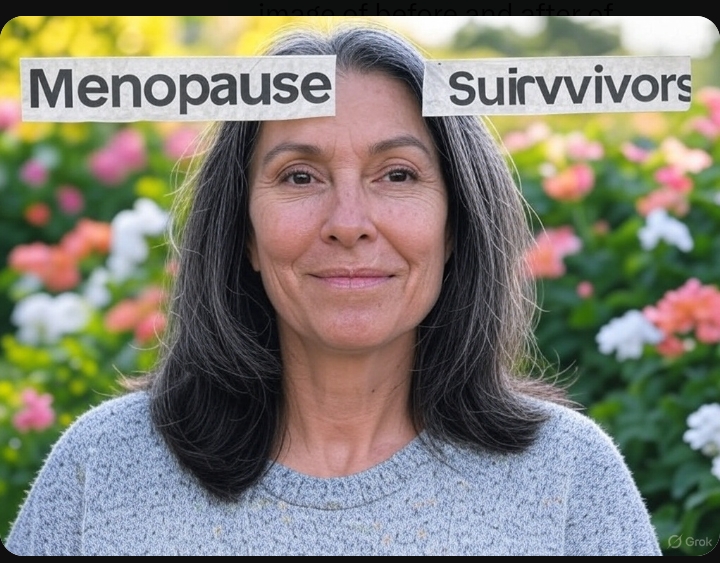Menopause is a natural transition, but many women wonder, “When does menopause end for women?” If you’re looking for clarity on how to know menopause has ended or the signs menopause is over, you’re not alone. The journey can feel unpredictable, with symptoms lingering longer than expected.
In this post, we’ll break down:
✔ What “menopause ending” really means
✔ Key signs menopause is over
✔ A real-life story of navigating menopause
✔ Common mistakes women make
Let’s dive in.
What Does “Menopause Ending” Actually Mean?
Menopause is officially diagnosed after 12 months without a period, marking the end of fertility. However, the symptoms—hot flashes, mood swings, and fatigue—often persist beyond this point.
The Three Stages of Menopause
- Perimenopause – The lead-up (usually starts in the 40s) with irregular periods and symptoms.
- Menopause – The 12-month period-free milestone.
- Postmenopause – The years after, where symptoms gradually fade.
When women ask, “When does menopause end?” they usually mean when symptoms stop. For most, this happens in their mid-50s, but it varies.
Signs Menopause Is Over: How to Know Menopause Has Ended
Wondering if you’re finally through it? Here’s what to look for:
✅ No more hot flashes or night sweats (the most common sign of relief).
✅ Stable mood & reduced irritability (hormones level out).
✅ Better sleep & consistent energy (no more 3 AM wake-ups).
✅ No periods for several years (postmenopausal is well underway).
But here’s the catch: While most women see symptoms fade within 4-7 years, some experience them for a decade or longer. A 2021 study found that 10% of women still had hot flashes in their 70s!
A Real-Life Example: Sarah’s Menopause Journey
Sarah, a 54-year-old teacher, started perimenopause at 46—irregular periods, night sweats, and exhaustion made her workdays grueling.
“I thought menopause would end as soon as my periods stopped at 51,” she said. But the hot flashes continued for three more years!
At 54, she finally noticed the signs menopause was over:
✔ No more sudden heat waves
✔ Better sleep and energy
✔ A calmer, more stable mood
For Sarah, menopause “ended” about 8 years after symptoms began—a common timeline.
Common Mistakes About When Menopause Ends
- Assuming symptoms stop at the 12-month mark → Many linger into post menopause.
- Ignoring medical help → Hormone therapy or lifestyle changes can ease the transition.
- Blaming every symptom on menopause → Fatigue or joint pain could be aging-related—see a doctor.
- Expecting a set timeline → Every woman’s experience is different.
How to Know Menopause Has Ended for You
There’s no official “menopause is over” test, but:
- Track symptoms (a journal helps).
- Notice long-term relief (months without hot flashes).
- Check hormone levels (FSH tests can confirm post menopause).
In addition, take Nuvialab Meno. Its helps reduce the stress, pain and discomfort associated with menopause. Menopause is a special period in the life of every mature woman. The timing of its occurrence depends on many factors and we have no control over it. However, it is only up to you what your mood will be like. With the right supplementation, you can reduce the annoying symptoms of menopause and regain your vitality.
NuviaLab Meno is an advanced multi-ingredient food supplement created for menopausal women. Its unique composition was selected to help with the most common symptoms of menopause, such as: hot flashes, excessive sweating, difficulty sleeping, a feeling of constant fatigue, irritability, decreased libido or malaise.
- Final Thoughts: When Does Menopause End for Women?
Menopause doesn’t have a hard stop—it’s a gradual shift. For some, symptoms fade in a few years; for others, they last longer.
Key Takeaway: Focus on symptom relief rather than a fixed endpoint. If you’re still struggling, talk to your doctor.
Did you notice the signs menopause is over for you? Share your experience in the comments.




